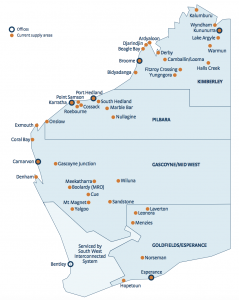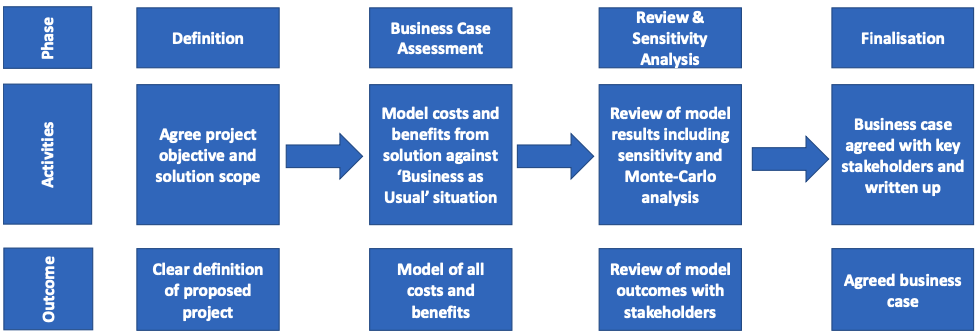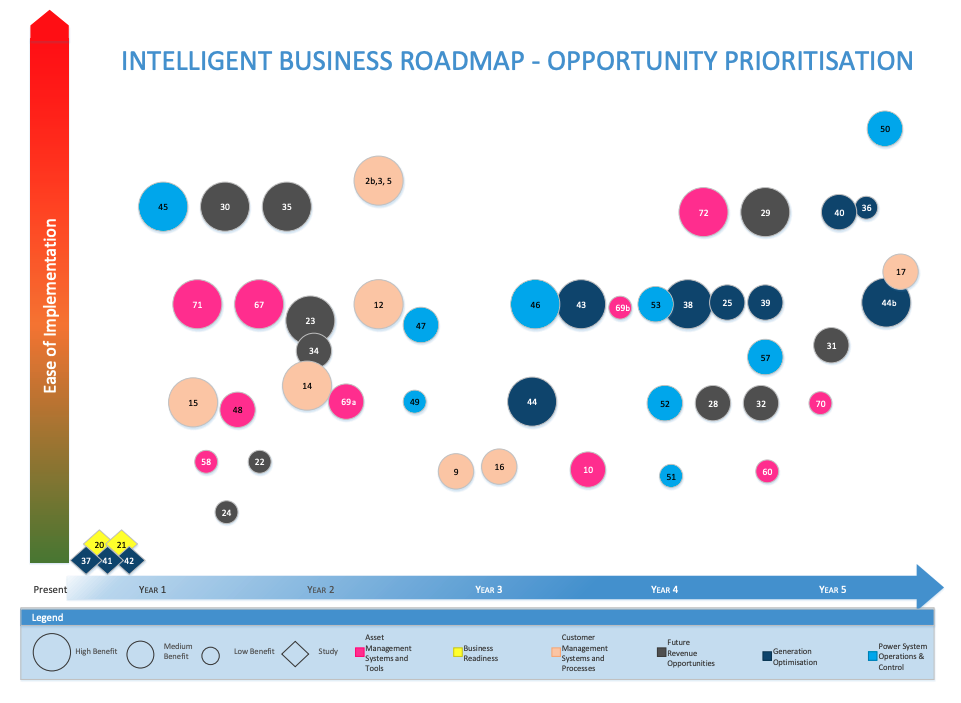Creating a Sustainable Business – An intelligent business roadmap for Horizon Power
DGA Consulting facilitated a strategic review of Horizon Power’s intelligent business opportunities and delivered a strategic roadmap to assist Horizon Power in developing a long term sustainable business.
Horizon Power supplies electricity to more than 100,000 residents and more than 10,000 businesses in regional towns and remote communities across Western Australia across a service area of approximately 2.3 million square kilometres, which means Horizon Power services the biggest area with the least amount of customers in the world. That is, for every 53.5 square kilometres of terrain, they have one customer.
The business faced a number of additional operating challenges. These included pressure to reduce their operating subsidy, concern on rising generation costs and the potential for increased distributed generation impacting their current operation model.
To overcome these challenges the business was keen to develop a roadmap of opportunities to develop a long term sustainable business. These opportunities break down into 2 main areas:
- Projects that utilise the AMI Infrastructure that Horizon Power are deploying and the additional customer data that will be available
- Opportunities to exploit advancements in distributed technologies for customers and utilities to deliver efficiency, reliability and network stability benefits.
Overview of the Project Approach
DGA Consulting’s project approach involved four distinct phases each of which had substantial collaboration through a series of workshops with Horizon Power. These workshops encompassed separate reviews for each impacted business area including generation, retail, system operations and control, asset management, strategy and IT, alongside update sessions with the Executive.
Phase 1 – Project Discovery
Discovery focused on reviewing the challenges and identifying opportunities that were applicable to Horizon Power. This included a number of opportunities that DGA Consulting had reviewed in other national and international projects as well as existing opportunities that Horizon Power were already considering. The discovery phase resulted in a long list of 76 opportunities that spanned the full range of business operations and covered all potential time horizons.
Phase 2 – Project Analysis
The analysis phase commenced with further definition of each opportunity to ensure clarity on its scope. Initial prioritisation was then undertaken based on a number of criteria including:
- Size of potential net benefits
- Alignment with strategic direction of Horizon Power
- Technological and market readiness
- Risk and complexity
- Impact of change on the business
The prioritisation resulted in a distribution of the prioritised opportunities on a time axis and an “ease of implementation axis”. The net benefit was captured in the size of the opportunity. The ease of implementation reflected the final 3 criteria above.
At a higher level the prioritisation considered the need to develop opportunities now that would assist the business over the short, medium and longer term.
Phase 3 – Project Review
Building on the initial prioritisation and the results of the cost benefit analysis a refined prioritisation of opportunities was defined. Many of these opportunities had inter-dependencies, which needed to be captured in the roadmap to avoid duplication of resources. To overcome this challenge DGA Consulting developed a set of 6 functional work streams with associated work components to map the inter-dependencies and provide an optimal way to deliver the suite of opportunities. Alongside the functional work streams an over-arching business readiness work stream was recommended to manage the process.
Phase 4 – Project Finalisation
The final stage of the process involved presenting the roadmap in a series of workshop to different groups within Horizon Power including the Executive. This process resulted in valuable feedback with the Roadmap updated to ensure it integrated with existing initiatives and that business owners were identified for each of the Roadmap initiatives.



